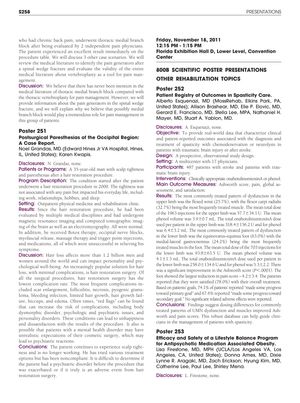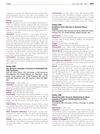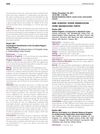Postsurgical Paresthesias of the Occipital Region: A Case Report
September 2011
in “
PM&R
”
hair restoration procedure Botox therapy occipital nerve blocks myofascial release massage therapy trigger point injections hair loss scalp tightness paresthesias MRI CT scans electromyography hair transplant Botox nerve blocks massage trigger point shots hair thinning scalp tension numbness MRI scan CT scan EMG

TLDR The man's scalp tightness after hair surgery affects his life and work, and it's unclear if it's due to the surgery or a mental health issue.
The document presents a case report of a 35-year-old man who experienced scalp tightness and paresthesias following a hair restoration procedure in 2000. Despite the absence of pain, the condition significantly affected his daily life. He was evaluated by various medical specialists and underwent several diagnostic tests, including MRI, CT scans, and electromyography, all of which returned normal results. The patient tried numerous treatments such as Botox therapy, occipital nerve blocks, myofascial release, massage therapy, trigger point injections, and medications, but none relieved his symptoms. The discussion highlights that hair loss affects over 1.2 billion people globally and can severely impact psychological well-being. Hair restoration surgery is a popular solution with a low complication rate, but complications can occur, including dissatisfaction due to pre-existing mental health conditions. The conclusion indicates that the patient's ongoing scalp tightness has led to him no longer working, and his noncompliance with treatment makes it challenging to determine whether his symptoms are an adverse event from the surgery or an exacerbation of a pre-existing psychiatric disorder.




